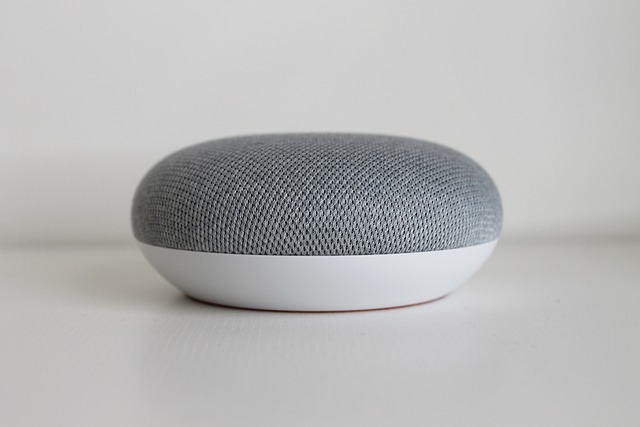AI assistants for marketing campaigns revolutionize strategies through advanced algorithms and natural language processing. They automate data analysis, audience segmentation, content creation, and performance tracking, freeing marketers from routine tasks. These tools optimize buyer journeys with AI funnels and provide instant support via chatbots, enhancing user experience. By sifting through vast customer data, they identify trends and insights for efficient, accurate decision-making, improving campaign performance and ROI in dynamic market conditions.
AI assistants are revolutionizing campaign planning, transforming how marketers approach strategy. By leveraging advanced algorithms and natural language processing, these tools streamline tasks from data collection to optimization, boosting efficiency and results. This article delves into the world of AI assistants in marketing, exploring their role in automating data analysis, refining strategies, and fostering collaboration. Discover how these game-changers are redefining campaign planning for folks across industries.
- Understanding AI Assistants in Marketing
- Automating Data Collection and Analysis
- Optimizing Campaign Strategies
- Enhancing Collaboration and Efficiency
Understanding AI Assistants in Marketing

AI assistants are transforming the marketing landscape, offering unprecedented efficiency and effectiveness for campaign planning. These intelligent tools leverage advanced algorithms and natural language processing to understand user needs and provide tailored solutions. An AI assistant for marketing campaigns can assist with a wide range of tasks, from data analysis and audience segmentation to content creation and performance tracking.
By automating repetitive and time-consuming activities, AI automation in marketing enables marketers to focus on strategic decision-making and creative execution. An AI funnel, for instance, can guide prospects through each stage of the buyer’s journey, personalizing interactions based on individual behaviors and preferences. Additionally, AI chatbots enhance customer engagement by providing instant support and answering common queries, thereby improving overall user experience.
Automating Data Collection and Analysis

The integration of AI assistants into marketing campaigns has revolutionized the way data is collected and analyzed. These intelligent tools can automatically sift through vast amounts of customer behavior data from various sources, including social media, website analytics, and email interactions. By leveraging machine learning algorithms, AI assistants identify patterns, trends, and insights that might otherwise go unnoticed. This capability enables marketers to make data-driven decisions more efficiently and accurately.
For instance, an AI assistant can help optimize the customer journey by analyzing customer segments and their interactions with marketing funnels (ai funnel). It can pinpoint areas of improvement in the ecommerce automation process, such as enhancing landing page experiences or refining personalized recommendations based on user preferences. With its analytical prowess, the AI assistant ensures that every step of the campaign is optimized, leading to higher conversion rates and better ROI for businesses.
Optimizing Campaign Strategies

AI assistants are transforming campaign planning by providing data-driven insights that optimize strategies. These intelligent tools analyze vast amounts of customer behavior and market trends, identifying patterns and opportunities that might be overlooked by human analysts. By leveraging machine learning algorithms, AI agents can predict consumer preferences, forecast demand, and personalize marketing messages, ensuring campaigns are targeted, effective, and efficient.
In the realm of ecommerce automation, AI assistants play a pivotal role in streamlining operations. They automate repetitive tasks such as inventory management, order processing, and customer service queries, freeing up valuable time for marketers to focus on creative strategy. This not only enhances overall campaign performance but also enables businesses to adapt swiftly to dynamic market conditions, giving them a competitive edge in today’s fast-paced digital landscape.
Enhancing Collaboration and Efficiency

The integration of AI assistants into marketing campaign planning has revolutionized the way teams collaborate and execute strategies. These intelligent tools act as a centralized hub, fostering seamless communication among team members and stakeholders. With their ability to process vast amounts of data quickly, AI assistants ensure that everyone involved has access to relevant information in real-time. This enhances efficiency by reducing time spent on manual data gathering and sharing, allowing marketing professionals to focus on creative aspects and strategic decision-making.
Moreover, these assistants streamline task management through automated workflows. They can prioritize to-do lists, set reminders, and even suggest optimal scheduling for various campaign activities, from content creation to distribution. In the realm of e-commerce automation, AI chatbots can handle customer inquiries, providing instant support and personalized recommendations, thereby improving overall customer engagement. This level of efficiency not only saves time but also contributes to better resource allocation, ultimately leading to more successful marketing campaigns.
AI assistants are revolutionizing campaign planning by automating data collection and analysis, optimizing strategies, and enhancing collaboration. By leveraging these intelligent tools, marketers can streamline their workflows, make data-driven decisions, and ultimately achieve better campaign outcomes. An AI assistant for marketing campaigns is no longer a futuristic concept; it’s a game-changer that simplifies complex tasks and fosters efficiency in today’s digital landscape.
